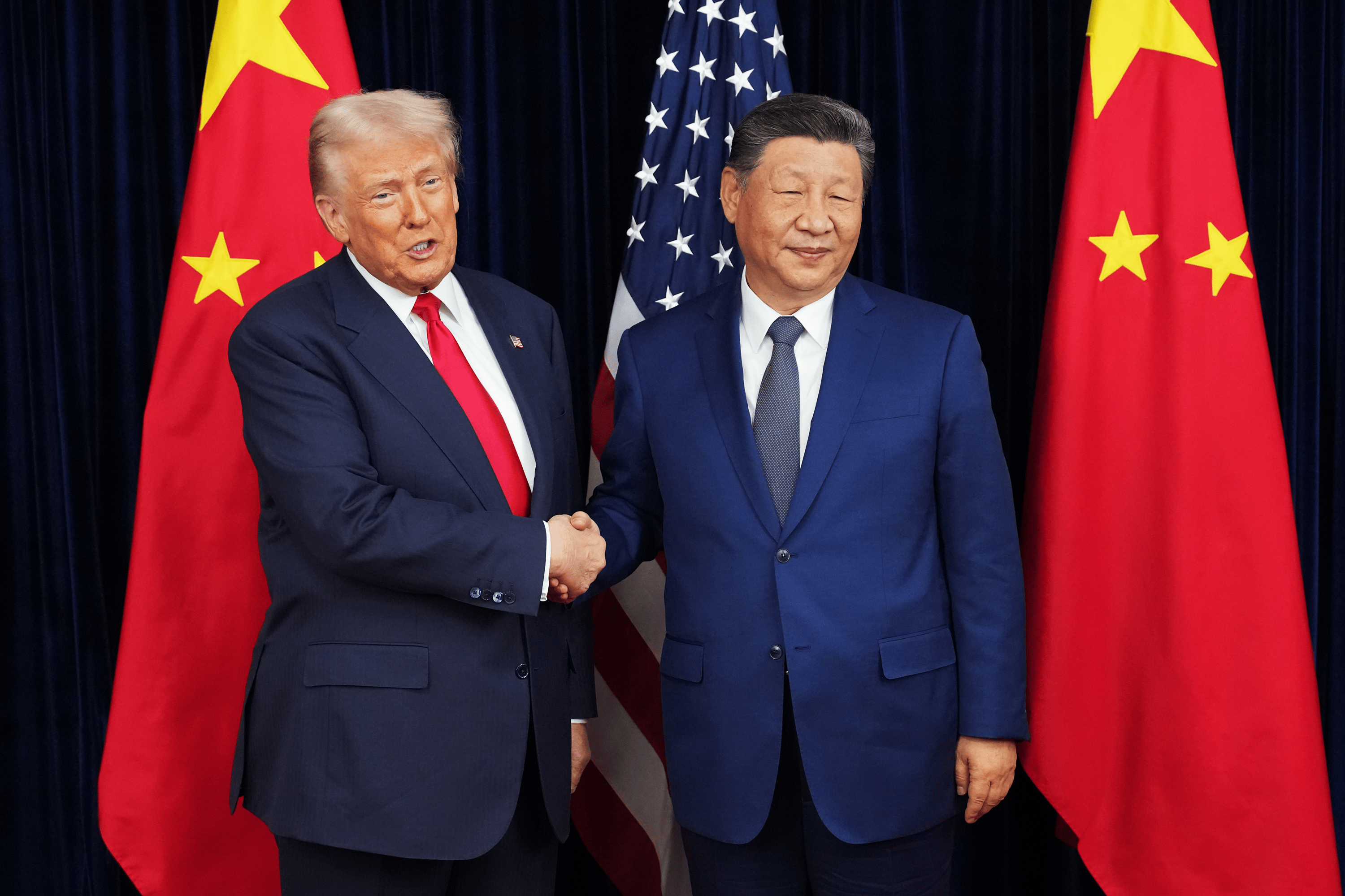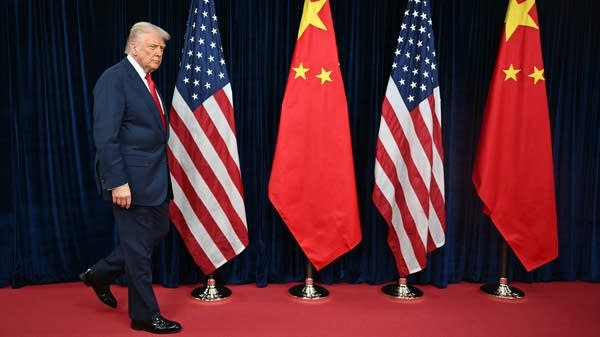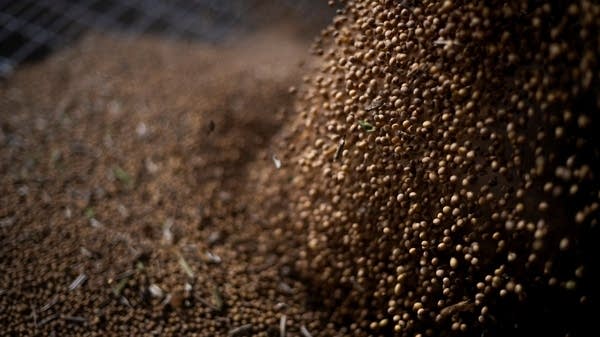Here's what Canadian shoppers and businesses have to say about Trump's tariffs
“Betrayal” is the word that came up often with residents of Thunder Bay, Ontario.

In the months since President Donald Trump's re-election, a lot has changed between the United States and Canada. Trump insisting that Canada become the 51st U.S. state and new import taxes on products coming from America's neighbor to the North, for example.
It all adds up to a strained relationship where Canadians feel both betrayed and uncertain about the future. To get a better sense of this, Marketplace's senior economics contributor Chris Farrell in St. Paul, Minnesota, traveled north just across the border, to Thunder Bay, Ontario. Below is an edited transcript of his conversation with “Marketplace Morning Report” host David Brancaccio.
David Brancaccio: So you get just across the border to Canada. Did you get the stink eye, Mr. U.S. Citizen?
Chris Farrell: People were incredibly nice. David, I just have to emphasize that. You know, Thunder Bay, it's this port city. It's a railway hub. People from Thunder Bay, they cross over into Minnesota, northern Minnesota, and people in northern Minnesota, they go do their shopping in Thunder Bay. I met Charla Robinson, president of the Thunder Bay Chamber of Commerce, in a diner.
Charla Robinson: We have a lot of sort of back and forth, you know, whether it's business or whether it's individuals just going to Grand Marais [Minnesota] for the weekend, those kinds of things. Going to Duluth, that back-and-forth activity, hockey teams, soccer teams, etc. Certainly from a business perspective, it's also been a close relationship. We do a fair bit of trade between some of our larger industries with Minnesota specifically.
Brancaccio: She said it's been a close relationship, but now with President Trump's tariffs 25% on a lot of things, 10% on some energy products, and Canada responding. What's it now — I don't know, testy — this relationship?
Farrell: The word that we heard a lot, David, is “betrayal.” You know, they're unhappy with Trump's insistence that Canada should become the 51st state. And the way they're expressing their displeasure is with their wallets. Cross-border travel is down. Vacation plans to the U.S. are canceled. American liquor, wine and beer, it's been pulled off the shelves in Thunder Bay, in Ottawa. And Livio Di Matteo — he's an economics professor at Lakehead University in Thunder Bay — notes that even grocery store aisles have changed.
Livio Di Matteo: We found oranges from Morocco and Egypt. We'd never really seen that before, so even the retailers are already making the effort. The broccoli has been coming from Mexico. We've noticed blueberries from Peru.
Brancaccio: All right, so some agility there. But can the Canadian economy decouple itself from the U.S.?
Farrell: Thirty percent of Canada's economy is export-oriented, and three-quarters of its exports go to the U.S. But in the interviews we had, David, Canadian business owners seem determined to reduce their reliance on the U.S. They're creating stronger business ties within Canada, and they're forging direct economic relations with other countries. So James Foulds, he's the founder of Border Giant — it’s based in Thunder Bay — and the company’s software smooths cross-border transactions for small businesses and individuals.
James Foulds: Pretty much every business right across Canada, they're going to start looking at other options in the supply chain, rather than USA. Even for distributors and everything. So between the pricing going up and the uncertainty and even the emotional response to the rhetoric with the 51st state and everything like that, is, “OK, there's really not a path forward. So we need to cut out the ties as best we can and move on to a more certain path.”
Brancaccio: Chris, once trust goes away, it’s not easy to get back.
Farrell: No, it isn't. And trust isn't easy to measure like land or capital. It's more like a recipe that allows for all kinds of economic activity and innovation. Again, Foulds.
Foulds: Once that trust is broken and you have to go somewhere else, you've done the work to look for something else, you've formed another relationship, and you don't tend to go back to that.
Farrell: No one knows how deep the rupture between the two economies is but Canadian entrepreneurs and businesses, they aren't waiting to find out. They're acting now.













